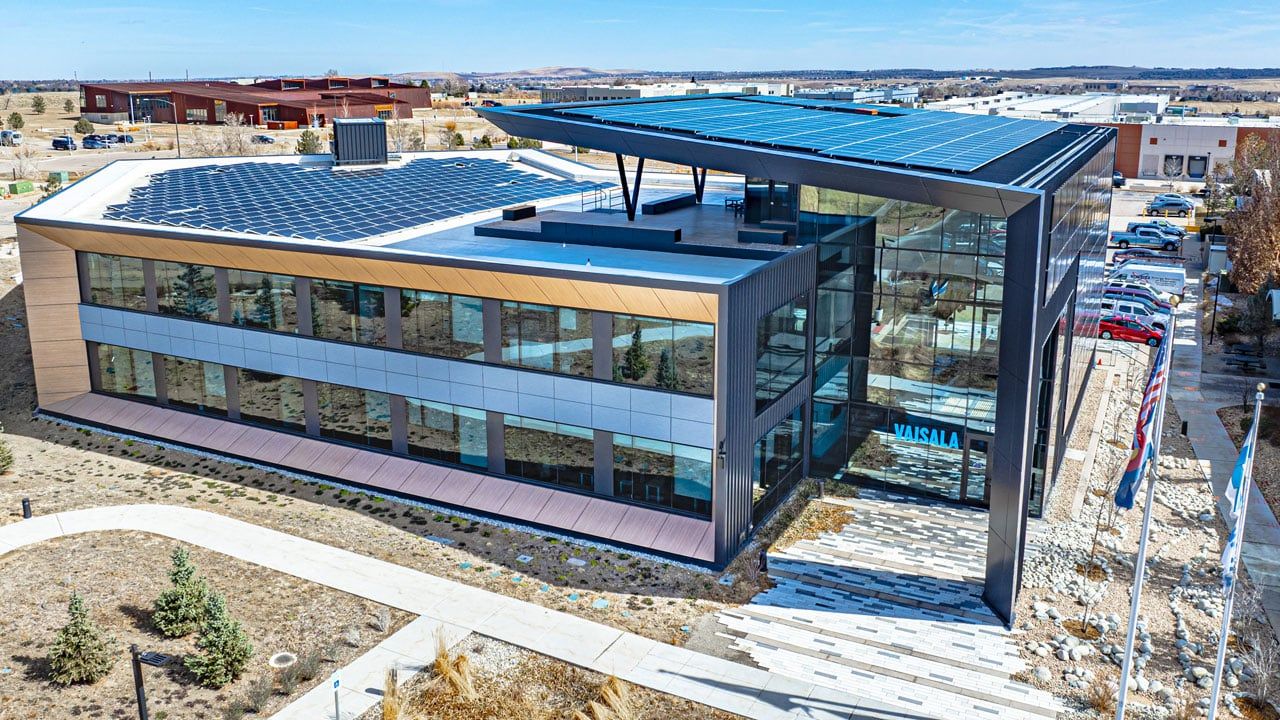Key discovery led to shift in state’s air-pollution regs
In the early 2000s, the state agency discovered significant leaks of volatile organic compounds from tanks at oil and gas well sites, said Garry Kaufman, deputy director of the division. The discovery led to a series of regulations over the years culminating in the state’s ground-breaking air regulations.
Kaufman made the remarks Friday at the University of Colorado School of Law’s 35th annual Martz summer conference on water- and air-quality issues related to oil and natural-gas development. The event highlighted environmental, social and economic impacts of oil and gas as well as regulations surrounding the industry.
SPONSORED CONTENT
Commercial Solar is a big investment, but not an overwhelming one
Solar offers a significant economic benefit for commercial property owners while also positively impacting the environment and offering a path to compliance for new municipal requirements like Energize Denver. A local, experienced solar installer will help you navigate the complexities of commercial solar to achieve financial success for your project.
“In the late 1990s, we had a very minimal understanding of the importance of oil and gas emissions for the formation of ozone,” Kaufman said. “We considered oil and gas emissions essentially insignificant.”
Using improved technology, the Air Pollution Control Division studied the matter and drew new conclusions about pollution from oil and gas development. It found that oil extracted from deep underground caused a large amount of emissions when transferred into above-ground storage tanks.
“We had our smart engineers start doing all the calculations and looking at all the different tanks – they’re thousands of them,” Kaufman said.
They made a key discovery that changed how the state regulated air pollution: Oil tanks represented the most significant source of volatile organic compounds in the state, he said.
In the past few years, the state has seen a renewed oil boom fed by advances in techniques such as horizontal drilling and hydraulic fracturing in shale formations that has led to increased ozone pollution along the Front Range.
In April, the state passed new rules requiring leak detection from tanks, pipelines and other drilling and production processes, using devices such as infrared cameras. The rules follow studies showing heightened pollutants such as methane coming from Weld County, where 80 percent of the state’s oil is produced.
As oil production has risen, Colorado has seen increased volatile organic compound emissions, Kaufman said. Volatile organic compounds, a group of chemicals that contribute to ground-level ozone pollution, or smog, include methane, a greenhouse gas more potent than carbon dioxide.
Exposure to ozone is linked to a wide range of health problems, including asthma. Since 2007, the Front Range has failed to comply with EPA ozone rules, including Weld and Larimer counties. Monitoring stations in Greeley and west of Fort Collins show among the highest ozone levels in the state, Kaufman said.
Kaufman, however, believes the state has made strides in reducing air pollution.
“We have made a lot of progress in reducing ozone values,” he said. “It’s just that the standards keep getting more stringent.”
In the early 2000s, the state agency discovered significant leaks of volatile organic compounds from tanks at oil and gas well sites, said Garry Kaufman, deputy director of the division. The discovery led to a series of regulations over the years culminating in the state’s ground-breaking air regulations.
Kaufman made the remarks Friday at the University of Colorado School of Law’s 35th annual Martz summer conference on water- and air-quality issues related to oil…
THIS ARTICLE IS FOR SUBSCRIBERS ONLY
Continue reading for less than $3 per week!
Get a month of award-winning local business news, trends and insights
Access award-winning content today!

